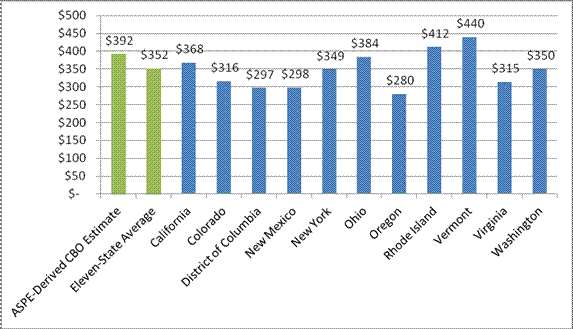§ 155.220 Ability of States to permit agents and brokers to assist qualified individuals, qualified employers, or qualified employees enrolling in QHPs...
(c) Enrollment through the Exchange. A qualified individual may be enrolled in a QHP through the Exchange with the assistance of an agent or broker if—
(1) The agent or broker ensures the applicant's completion of an eligibility verification and enrollment application through the Exchange Web site as described in §155.405;
(2) The Exchange transmits enrollment information to the QHP issuer as provided in §155.400(a) to allow the issuer to effectuate enrollment of qualified individuals in the QHP.
(3) When an Internet Web site of the agent or broker is used to complete the QHP selection, at a minimum the Internet Web site must:
(i) Meet all standards for disclosure and display of QHP information contained in §155.205(b)(1) and (c);
(ii) Provide consumers the ability to view all QHPs offered through the Exchange;
(iii) Not provide financial incentives, such as rebates or giveaways;
(iv) Display all QHP data provided by the Exchange;
(v) Maintain audit trails and records in an electronic format for a minimum of ten years; and
(vi) Provide consumers with the ability to withdraw from the process and use the Exchange Web site described in §155.205(b) instead at any time.
§ 155.205 Consumer assistance tools and programs of an Exchange.
(b) Internet Web site. The Exchange must maintain an up-to-date Internet Web site that meets the requirements outlined in paragraph (c) of this section and:
(1) Provides standardized comparative information on each available QHP, including at a minimum:
(i) Premium and cost-sharing information;
(ii) The summary of benefits and coverage established under section 2715 of the PHS Act;
(iii) Identification of whether the QHP is a bronze, silver, gold, or platinum level plan as defined by section 1302(d) of the Affordable Care Act, or a catastrophic plan as defined by section 1302(e) of the Affordable Care Act;
(iv) The results of the enrollee satisfaction survey, as described in section 1311(c)(4) of the Affordable Care Act;
(v) Quality ratings assigned in accordance with section 1311(c)(3) of the Affordable Care Act;
(vi) Medical loss ratio information as reported to HHS in accordance with 45 CFR part 158;
(vii) Transparency of coverage measures reported to the Exchange during certification in accordance with §155.1040; and
(viii) The provider directory made available to the Exchange in accordance with §156.230.
c) Accessibility. Information must be provided to applicants and enrollees in plain language and in a manner that is accessible and timely to—
(1) Individuals living with disabilities...
(2) Individuals who are limited English proficient...

 ...but I'm pretty sure that wouldn't fly.
...but I'm pretty sure that wouldn't fly. 